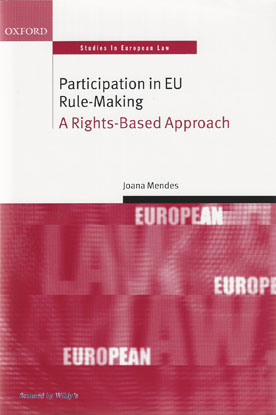
The limited scope of participation in the making of EU law remains a continued source of controversy, featuring prominently in recent institutional and political developments that have been shaping the EU's constitutional framework - most intensely in the follow up of the Commission's White Paper on Governance.
Yet little attention has been paid to participation rights as a means of ensuring the procedural protection of persons affected by EU regulation in its diverse forms. This is a dimension of the rule of law that has been largely ignored by EU legislative and judicial bodies.
Not only the legislator, but also the Court of Justice and the Court of First Instance tend to adhere to excessively formal conceptions of participation rights that are premised on the right to be heard in individual procedures, as well as to a restrictive view regarding the relationships between the citizens and the administration.
This book shows why, in the face of new regulatory developments, these conceptions are currently inadequate to ensure the legal protection of rights and interests affected by EU regulation.
Combining a conceptual analysis with thorough empirical scrutiny, this book assesses the scope of participation rights in EU law against their rationales and underlying legal values. It makes a case for the extension of participation rights to new situations and new types of procedures, in particular those that would generally fall within the category of rulemaking.
It brings distinct normative insights into a crucial theme of EU administrative law, and makes a topical and timely contribution to the increasingly notable theme of public participation in EU regulation.